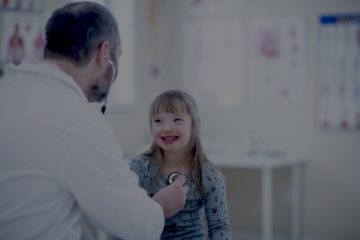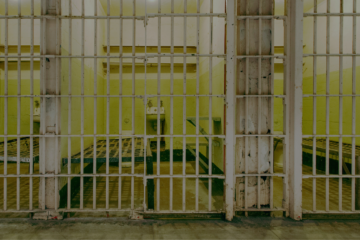Last week, we announced that Think Kids and the West Virginia Prevention Research Center (WVPRC) were awarded a two-year grant from the Robert Wood Johnson Foundation (RWJF) in support of a research collaboration to assess how West Virginia compiles and reports health surveillance data in order to build a more inclusive surveillance system.
Here’s why we applied, what we plan to do, and how you can be a part of the When All Are Counted project.
Public health surveillance is a complex process undertaken for a simple purpose— keeping the public healthy. It requires making sense of population data to faithfully reflect what is happening in the population at large and meaningfully respond to potential threats.
But not all health surveillance systems are created equal. Continued underinvestment in West Virginia’s system has resulted in population groups going undocumented, a lack of focus on measuring health equity, and a lack of accountability of the state to care for all of its citizens.
For years, what data we’ve collected has been exclusive to the majority. We’ve designated smaller populations as “statistically insignificant.”
Think about that. These are the same populations that experience some of the most significant health inequities— disparities unique to their population. But they aren’t blips on the radar to be tracked and monitored. Could this lack of inclusion contribute to how they perceive their health and the systems that serve them?
We’ve all heard the phrase “what gets counted, gets done.” For the When All Are Counted project, we’re going to take a long, deep dive into how data is collected and shared in our state, how the health and well-being of population groups are adversely affected by this process, and ways we can collectively get to structural solutions to build a better, inclusive surveillance system here in West Virginia.
The project is funded under RWJF’s Community Research for Health Equity program managed by AcademyHealth. We are grateful and excited to work alongside an organization known for its work in applying research evidence to real-world health care challenges.
This research project will be guided by an advisory group of 12— four representatives from the Black, disability, and LGBTQIA communities— who will provide leadership through every part of the process.
Dr. Traci Jarrett with the WVPRC will oversee the project’s research component. The WVPRC is a member of the Prevention Research Centers Program, supported by the Centers for Disease Control and Prevention. I can’t tell you how long I’ve known Traci; we’ve worked peripherally on a handful of projects together. This is our first opportunity to partner.
Amy Jo Hutchison is the project community outreach specialist. I remember Amy Jo before becoming famous for her testimony to the Congressional Oversight Committee in 2020. She was one of our first calls when we began planning this project. She’s an advocate who articulates her lived experiences in such an honest and fearless way that it makes others feel open to doing the same. She will oversee the implementation of qualitative research activities— focus groups, interviews, and surveys.
Unique to the project is the addition of a communications group. They will be bringing prevailing themes from our work to public spaces. Their names are probably familiar to you, especially if you’re active on social media.
Crystal Good is a poet, performer, and founder of Black By God The West Virginian. She’s been described as an Appalachian and Affrilachian artist, and we’re thrilled that she’s agreed to lend her incredible talent and insight to this project.
I first met Jack Jarvis when he was a state government journalist in Charleston. I then saw him again on social media as the Communications Director for Fairness West Virginia. He brings vulnerability, honesty, and wit to his writing. We’re glad he’s on board with the project.
Finally, there’s Erin Beck. We’re big fans of Erin. We contracted with her last year as our Kids’ Health Correspondent. She’s a freelance reporter with a Masters in Public Health and experienced in covering health issues when key data is missing. Her work will focus on the growing disability community in our state.
If this project interests you, please sign up for our newsletter. There’s a form to the right of this post. We’ll keep you updated as the project unfolds with event dates and opportunities to engage with us. It’s important work for Think Kids to undertake, to show younger generations of West Virginians that when we recognize the inequalities in our government systems, we take on the tough task of fixing them. It’s not easy work, and it will take time, collaboration, and support. It’s a journey that we hope you’ll take with us.
Kelli Caseman is the Executive Director of Think Kids.




0 Comments